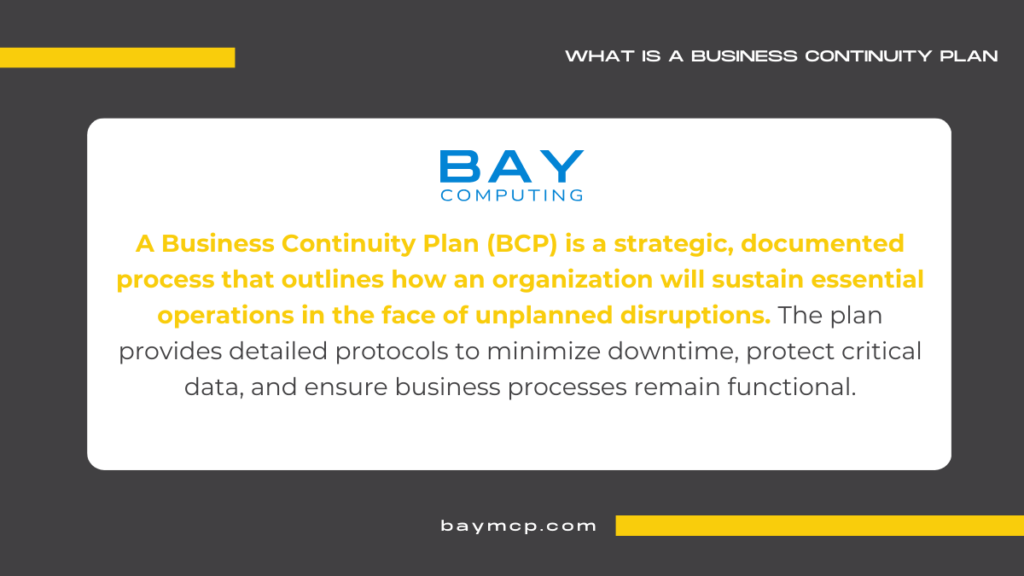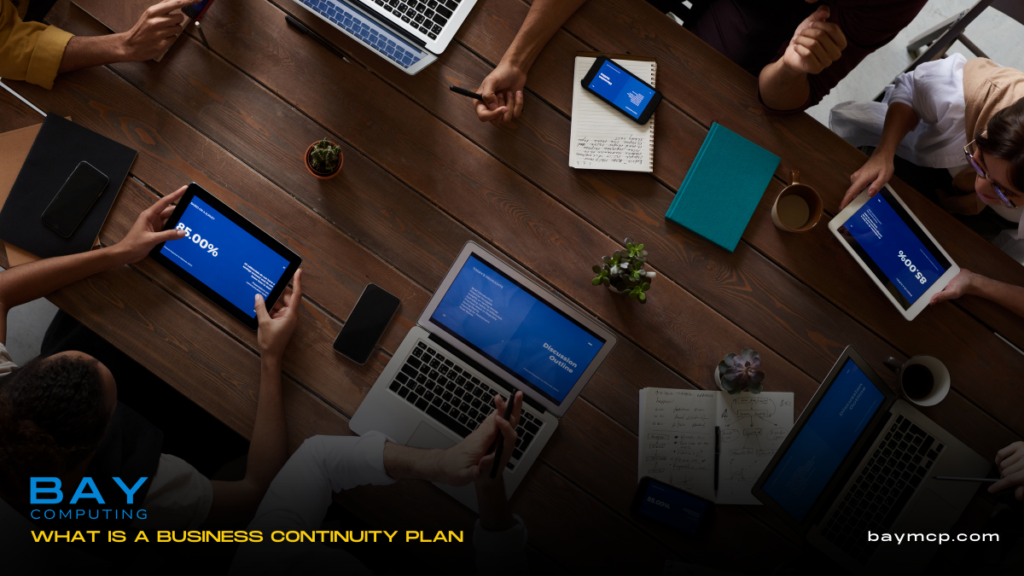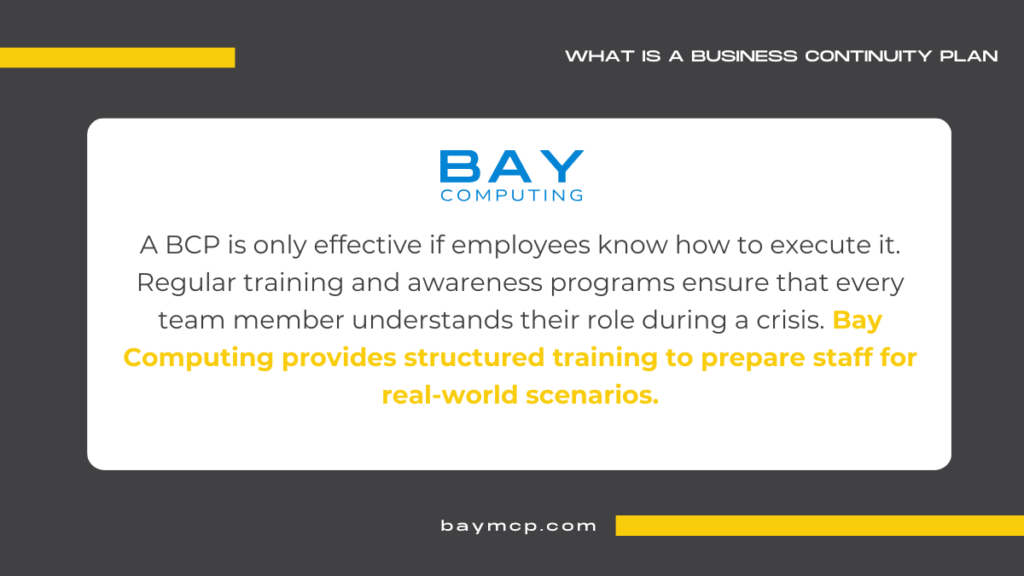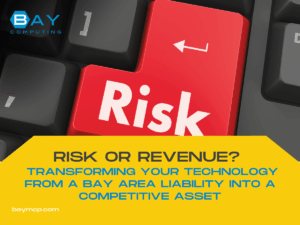What is a Business Continuity Plan
Every business, regardless of size or industry, faces unexpected challenges—ranging from natural disasters to cyberattacks and system failures. A well-structured Business Continuity Plan (BCP) is essential to ensuring operations remain uninterrupted during and after disruptive events. Having a proactive approach to risk management can mean the difference between swift recovery and prolonged downtime.
Creating a BCP involves identifying critical functions of the business and determining the systems and processes that must be sustained. It includes detailed steps to maintain operations, ensuring minimal downtime and impact. Companies understand that a well-prepared BCP can mean the difference between swift recovery and prolonged interruption.
Implementing a BCP is not just about immediate responses. It is also a key component of a company’s risk management strategy. By preparing for a variety of potential threats, businesses can safeguard both their assets and their reputation. This proactive approach not only protects the business but also instills confidence in employees and clients alike.
Understanding Business Continuity Plan?

A Business Continuity Plan (BCP) is a strategic, documented process that outlines how an organization will sustain essential operations in the face of unplanned disruptions. The plan provides detailed protocols to minimize downtime, protect critical data, and ensure business processes remain functional.
By identifying potential threats and establishing contingency plans, businesses can reduce financial losses, safeguard their reputation, and maintain customer trust even during crises. At Bay Computing, we help businesses build customized continuity strategies that align with their unique operational needs.
Why is Business Continuity Plan Essential?
Disruptions come in many forms—whether it’s a power outage, cyber breach, natural disaster, or even a global crisis. Without a solid business continuity plan and strategy, organizations risk data loss, operational delays, and legal or financial repercussions.
A well-designed business continuity plan provides clear steps for employees to follow, ensuring that everyone knows their roles during a crisis. This keeps communication lines open and ensures the safety of staff and customers. Additionally, having a business continuity plan can help meet legal or contractual obligations, further protecting the company from potential liabilities.
The plan also plays a crucial role in maintaining customer trust. Customers expect reliability, and having a solid BCP ensures that services are not disrupted, even in challenging situations. This reliability can significantly enhance customer satisfaction and loyalty.
A business continuity plan plays a crucial role in risk management, ensuring businesses can:
- Minimize operational downtime and quickly resume critical functions.
- Protect sensitive business data from breaches and cyber threats.
- Ensure regulatory compliance with industry standards and legal requirements.
- Enhance customer confidence by demonstrating reliability and preparedness.
- Mitigate financial losses by keeping essential services operational during disruptions.
Key Components of an Effective Business Continuity Plan

A comprehensive business continuity plan typically includes several crucial components:
1. Risk Assessment & Business Impact Analysis (BIA)
Understanding potential threats is the foundation of an effective plan. A risk assessment identifies vulnerabilities, such as cybersecurity risks, natural disasters, or infrastructure failures.
A Business Impact Analysis (BIA) evaluates the financial and operational impact of different disruption scenarios. This step prioritizes critical business functions and resources, ensuring the right recovery strategies are in place.
2. Identifying Critical Business Functions
Businesses must determine which operations are most crucial to survival and long-term sustainability. Identifying key processes, dependencies, and essential personnel ensures focus on high-priority functions in an emergency.
3. Developing Recovery Strategies
Recovery strategies vary based on industry, business model, and risk factors. They may include:
- IT disaster recovery plans for cybersecurity breaches or data loss.
- Alternative communication channels to maintain internal and external operations.
- Cloud-based backup solutions to ensure access to critical business data.
- Supplier and logistics contingency plans to avoid supply chain disruptions.
4. Implementation, Training, and Awareness

A BCP is only effective if employees know how to execute it. Regular training and awareness programs ensure that every team member understands their role during a crisis. Bay Computing provides structured training to prepare staff for real-world scenarios.
5. Testing and Continuous Improvement
A BCP must be continuously tested and updated to remain relevant. Organizations should conduct regular drills, tabletop exercises, and audits to evaluate their preparedness. Frequent testing identifies weaknesses and allows for adjustments to improve response effectiveness.
Business Continuity and Cybersecurity: A Critical Connection
With rising cyber threats, business continuity is no longer just about physical risks. Cybersecurity is a major pillar of any BCP, ensuring that sensitive data remains protected, even during an attack.
At Bay Computing, we specialize in integrating advanced cybersecurity measures into business continuity strategies, including:
- Ransomware protection and recovery solutions
- Secure cloud-based backup and disaster recovery
- Endpoint security and access control
- 24/7 network monitoring to detect and mitigate threats

Secure Your Business with Bay Computing
A well-structured Business Continuity Plan is more than just an emergency strategy—it’s an investment in long-term resilience and stability. Bay Computing offers tailored business continuity and cybersecurity solutions to help companies mitigate risks, maintain compliance, and ensure seamless operations in any crisis.
Is your business prepared for the unexpected? Don’t wait until disaster strikes. Contact Bay Computing today to develop a customized business continuity strategy that keeps your operations running—no matter what challenges arise.




